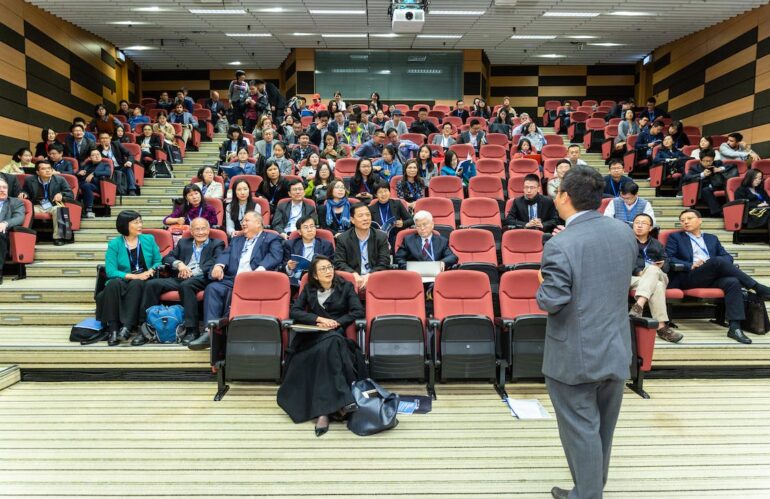
Academic conferences serve as vital hubs of knowledge exchange, collaboration, and professional development within the academic community. These gatherings bring together scholars, researchers, educators, and students from diverse disciplines to share insights, discuss emerging trends, and foster meaningful connections. Let’s delve into the significance of academic conferences, exploring their benefits, key components, and tips for maximizing your experience.
The Value of Academic Conferences
Academic conferences play a pivotal role in advancing scholarly pursuits and driving intellectual progress. Here are some key reasons why these gatherings hold immense value:
Knowledge Exchange
Academic conferences provide a platform for scholars to present their research, share innovative ideas, and engage in intellectual discourse. These exchanges contribute to the collective knowledge base of various fields and facilitate interdisciplinary collaborations.
Networking Opportunities
Conferences offer crucial networking opportunities, allowing attendees to connect with peers, mentors, and potential collaborators from around the world. Networking at conferences can lead to collaborations on research projects, invitations for speaking engagements, and valuable career connections.
Professional Development
Conferences often feature workshops, panels, and seminars focused on professional development topics such as grant writing, publishing strategies, career advancement, and teaching methodologies. These sessions provide valuable insights and skills enhancement opportunities for attendees at all career stages.
Exposure to Emerging Trends
Academic conferences showcase the latest research trends, methodologies, and technological advancements within various disciplines. Attending conference sessions and presentations enables participants to stay informed about cutting-edge developments in their fields of interest.
Feedback and Peer Review
Presenting research at conferences allows scholars to receive feedback, constructive criticism, and peer review from fellow academics. This feedback is invaluable for refining research methodologies, strengthening arguments, and improving the quality of scholarly work.
Key Components of Academic Conferences
Academic conferences typically feature several key components designed to facilitate knowledge exchange, networking, and professional development. Some common components include:
Plenary Sessions
These are keynote presentations delivered by distinguished scholars or thought leaders in the field. Plenary sessions set the tone for the conference and address overarching themes or trends.
Parallel Sessions
These sessions consist of concurrent presentations or panel discussions on specific topics or subfields within the discipline. Attendees can choose which sessions to attend based on their interests and expertise.
Poster Presentations
Poster sessions allow researchers to showcase their work through visual displays accompanied by brief oral presentations. These sessions provide an interactive forum for sharing research findings and engaging in discussions with attendees.
Workshops and Seminars
These sessions focus on skill-building, professional development, and practical applications relevant to academic and research careers. Workshops may cover topics such as data analysis techniques, grant writing, academic publishing, and career planning.
Networking Events
Academic conferences often include social events, receptions, and networking sessions where attendees can interact informally, exchange ideas, and build professional relationships.
Exhibition and Sponsorship Opportunities
Many conferences feature exhibition halls or sponsor showcases where vendors, publishers, and organizations display their products, services, and resources relevant to the academic community.
Tips for Maximizing Your Conference Experience
To make the most of your academic conference experience, consider the following tips:
Plan Ahead
Review the conference program in advance and identify sessions, workshops, and presentations of interest. Create a personalized schedule to optimize your time and prioritize key sessions.
Engage Actively
Actively participate in sessions, ask questions, and engage in discussions with presenters and fellow attendees. Don’t hesitate to network and introduce yourself to new contacts during breaks and social events.
Present Your Research
Consider submitting an abstract for presentation or a poster session to showcase your research findings and receive feedback from peers. Presenting at conferences enhances your visibility within the academic community and fosters professional connections.
Network Strategically
Be strategic in your networking efforts by identifying individuals or groups with whom you’d like to connect. Prepare an elevator pitch that succinctly highlights your research interests, background, and goals.
Take Notes
Bring a notebook or use a note-taking app to jot down key insights, ideas, and action items during sessions. Reflect on these notes after the conference to implement new learnings into your research or professional practice.
Follow Up
After the conference, follow up with new contacts via email or professional networking platforms. Express gratitude for any valuable connections made and continue conversations initiated during the event.
Stay Engaged
Stay engaged with the academic community beyond the conference by joining relevant professional associations, participating in online forums, and attending future conferences and events.
Conclusion
Academic conferences serve as dynamic forums for knowledge exchange, networking, and professional development within the academic community. By actively participating in conferences, scholars, researchers, educators, and students can enhance their expertise, expand their professional networks, and contribute to the advancement of knowledge in their respective fields. Embrace the opportunities that academic conferences offer, and embark on a journey of intellectual growth and collaboration that will enrich your academic and professional endeavors.

